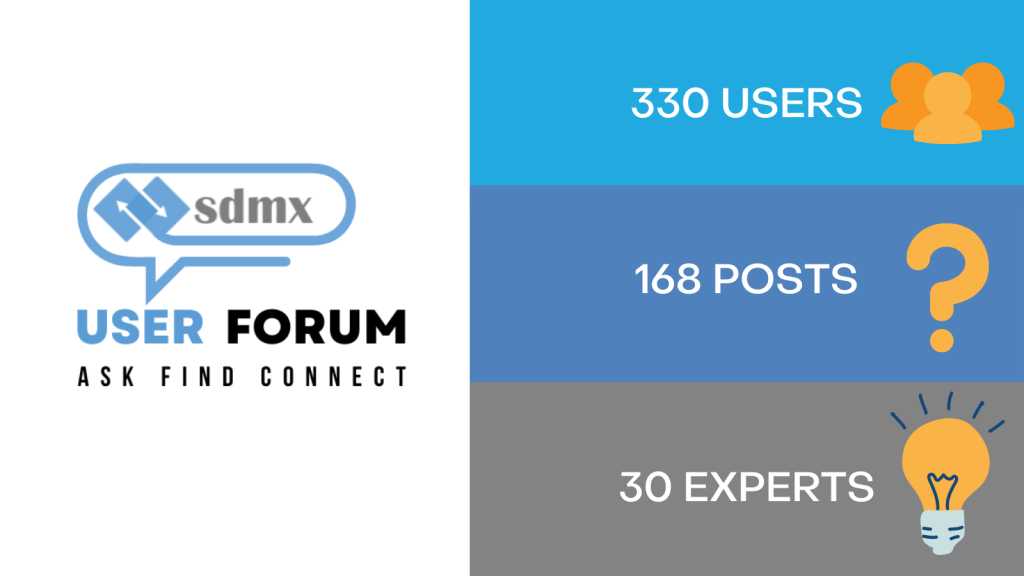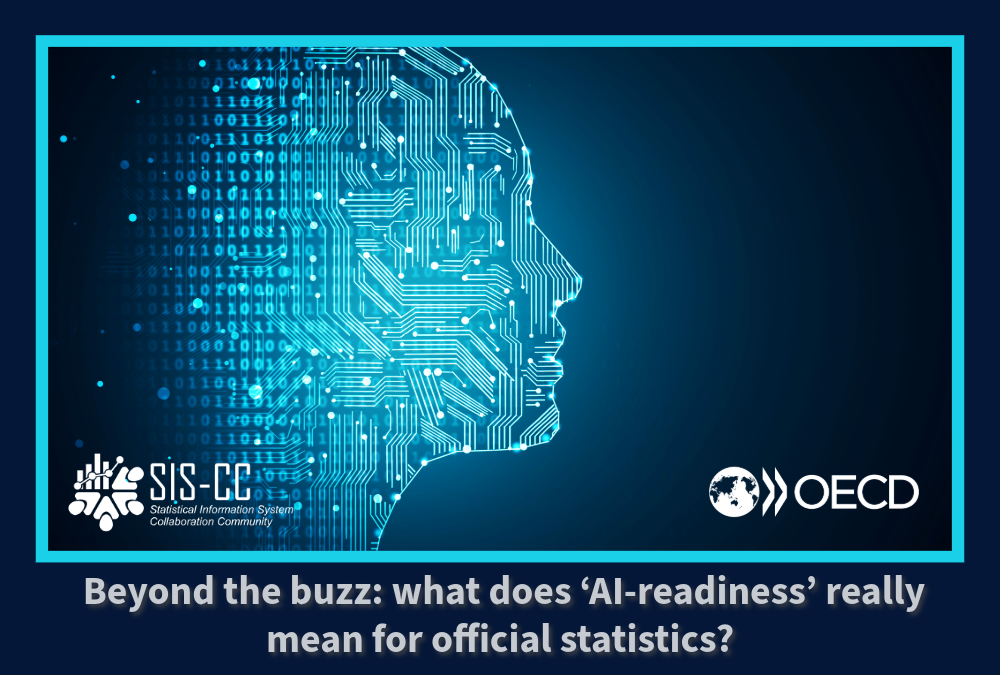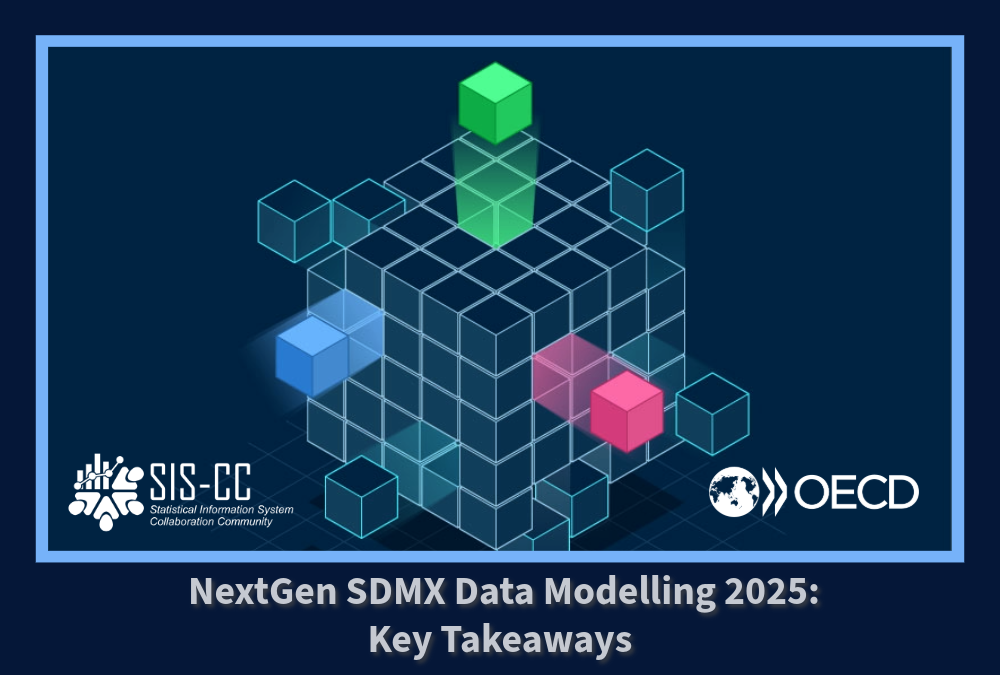
Update on the SDMX User Forum
The SDMX User Forum was officially launched at the occasion of the 11th SDMX Experts meeting that took place in Aguascalientes, Mexico at the end of 2022. This is the first of its kind in SDMX history. The SDMX Secretariat welcomes the official statistics and wider community to join this space for knowledge sharing and problem solving!
The community is now 330 plus strong and has 168 posts. We have around 30 experts registered who can answer questions covering a wide range of topics like SDMX tools, Data Modelling, Training, and manuals, Global DSDs, SDMX Events and more.
Ask. Find. Connect. The SDMX User Forum
The SDMX User Forum is a community of practice where users can exchange ideas, ask questions and find solutions. It also provides opportunities for users to connect with experts and peers in order to share experiences related to the use of SDMX.
It is designed as a space to generate ideas, receive feedback and access information on case studies and implementation scenarios, documentation, events, and much more.
The SDMX User Forum is open to everyone who wants to take part in the global community of users exchanging knowledge about all things SDMX regardless of their level of experience or knowledge. We encourage anyone involved in SDMX, from beginners who want to get started and learn more about SDMX in general; through intermediate users who want help with specific topics such as reuse of global data structures definitions (DSDs); to more advanced users who are looking for advice on how best they can use the SDMX standard within their organisation’s context.
“We are really pleased to have launched the SDMX User Forum as a new way to exchange views and experiences between implementers and the wider community. We encourage anyone involved in SDMX to join, from beginners who want to get started and learn more about SDMX in general to more advanced users who are looking for advice on how best they can use the SDMX standard within their organisation’s context.” Rafael Schmidt, SDMX Secretariat Chair, BIS
You can connect with more than 30 experts covering 9 main topic areas including, SDMX tools, global DSDs, registries, modelling and events. You will soon be able to view their profiles as well as their area of expertise to help you connect to the right expert and get the best advice to respond to your needs.
The experts are drawn from the current members of both the SDMX Technical (TWG) and Statistical (SWG) Working groups as well as from the wider community. The SDMX TWG and SDMX SWG are the main technical working groups of SDMX. The members of these two groups are experts from different countries and organisations, who work together to develop the SDMX standard. Both groups have large number of members with diverse backgrounds and experiences, including statisticians, methodologists, architects, software developers, data engineers, data scientists and many others.
“We would welcome more experts from the wider community to submit a request to participate and help support the growing number of users looking for answers to their SDMX problems on the SDMX User forum”
Edgardo Greising, SDMX Secretariat, ILO
How to join the User Forum
Sign up now to access relevant information about SDMX and join interesting discussions, learn about best practices and find first level support on SDMX related topics.
To find out how to join the SDMX User Forum please read the sign-up instructions.
About SDMX
SDMX stands for Statistical Data and Metadata Exchange. It is an ISO recognised open standard and a global initiative sponsored by seven international organisations, to improve exchange of data and metadata. Standardising content and technical standards, as well as having a model to describe the data and metadata, help in improving quality of data, help programmatic exchange of data and thus helping with access to latest and high-quality data.
SDMX offers a common language to ensure a smooth communication between experts and within organisations to exchange information efficiently by standardising the way data are organised and exchanged. To find out more on sdmx.org.


